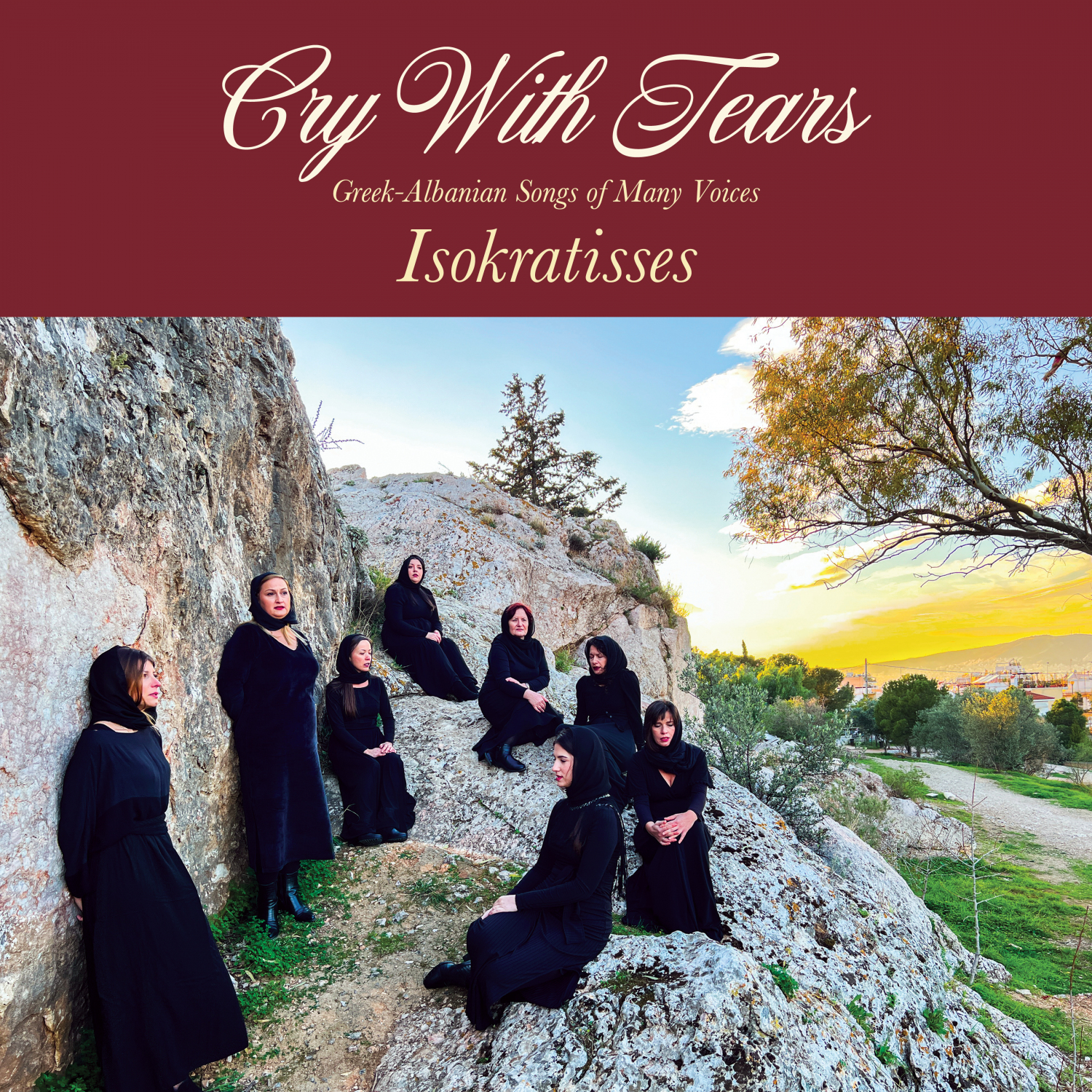
“These songs are heavy, very heavy,” Christopher King warned the audience at the Kennedy Center in Washington on the evening of October 13th. An American ethnomusicologist presented a concert of the female group “Isokratisses” and, of course, he knew what he was saying: the polyphonic song of Epirus is not for every moment.
Of course, King, a connoisseur of the music of Epirus, author of the book Ipirotiko Moirola (Doma Publishing House) and a resident of Konitsa, explained at one time that polyphonic singing is much more: a musical genre with ancient roots based on the pentatonic scale; its performers have distinct roles; what speaks of love and loss; and that, in the case of the Isokratis, it acquires an additional meaning: “the restoration of the significance of the female voice in the Southern Balkans.”
Through their hearts
In their first US show, Queens also recently performed at the Richmond Folk Music Festival in Virginia and at the University of Wilmington in Delaware. The initiative belonged to Christopher King, and the project was supported by the US Embassy, the Latsis Foundation and the Baguio Foundation. “I am so proud of these women,” King says today, “for how they were able to relax and sing clean, from the heart, in front of so many thousands of Americans. Most Americans have never heard anything like this music.”
“For those who delve into the meaning, their pleasure and gratitude is worth the effort,” says Ben Blackwell of Third Man Records.
The Isokratissas themselves speak of a unique and touching experience. “You could see people trying to figure out what they were hearing, what those voices were saying, and I think the polyphonic song was better received than we expected,” says Iris Nurentini, a member of the band. “It’s a potentially heavy genre, and it’s hard for those who don’t understand the words,” he continues. “We didn’t think they would hear more than five tracks. However, especially in Richmond, it was done with great success.
So, lyrics. They talk about the “Plain Deropolis”, where “a tree grew, a boy lay.” They refer to a young widow, “married five months”, who goes to her mother with “wreaths on her belt”. Which are addressed to a stranger who, if you send cranberries, “gets raisins along the way.” The “Isokratissas”, originally from Policani Pogoniou and Deropoli, a Greek minority village in Albania, as well as Kastaniani Ioannina, first heard such songs in childhood. Their first memories are of weddings and celebrations, as well as sort of “mutterings” or scary obituaries when someone left home or died. “Many times these texts and “mumbling,” recalls Iris Nurentini, “expressed some pain and at the same time you. Whether you want to listen to them or not.”
But what is the significance of polyphonic singing today? Artemis Izou, a member of the Isokratisses, explains that polyphonic singing was the preserve of a few, but interest in it is growing. In addition to the general shift towards “forgotten music”, this genre has also been developed by digital media, and thus reactivated its expressive core and created an interactive community. “While some listeners and performers prefer the museum approach,” continues Ms. Isou, “for us it is a living, evolving form of expression. A living organism of which we are shareholders, meaning trees that grow on watered roots but thrive with the help of wind and sun. And the quintessential collective musical genre contributes to contemporary reality with its most important feature: the interplay and interdependence of voices.”

Recently “Isokratisses” released a disc in America called “Cry With Tears: Greco-Albanian Songs of Many Voices”. Production was handled by King and the record company was Jack White’s Third Man Records (formerly the White Stripes), which has other continental music in its catalogue. “Cry With Tears” includes tracks such as “Between the Three Seas”, “My Magic Is Done”, “Verginada”, and King’s interpolated lyrics also inform the listener of those individual roles that we used to call: the “party” that takes on himself the main melody, the “turner” who adds a parallel, the “isocrates” who keeps straight, and also the “spinner” who brings in sounds such as the hoot of an owl, the chirping of a nightingale, the murmur of a stream.
“The song… It looks like it’s following you. Sounds bigger than the world, sounds important. It’s unlike anything I would have heard if I hadn’t met the Isocrates,” says Third Man Records co-owner Ben Blackwell. “In America, a lot of people don’t know how to approach continental music,” he concludes. “Her sounds are heavy on the ears, not exactly adventurous. But for those who understand this, for those who delve into the meaning, their pleasure and gratitude are worth the effort we make to open horizons for people.
Source: Kathimerini
James Springer is a renowned author and opinion writer, known for his bold and thought-provoking articles on a wide range of topics. He currently works as a writer at 247 news reel, where he uses his unique voice and sharp wit to offer fresh perspectives on current events. His articles are widely read and shared and has earned him a reputation as a talented and insightful writer.